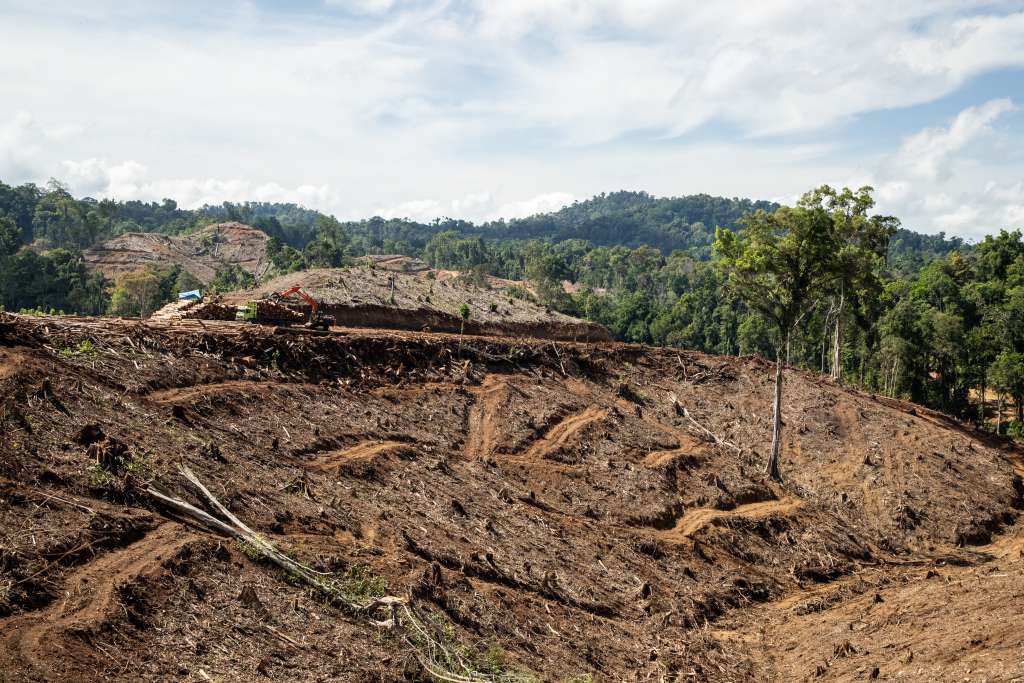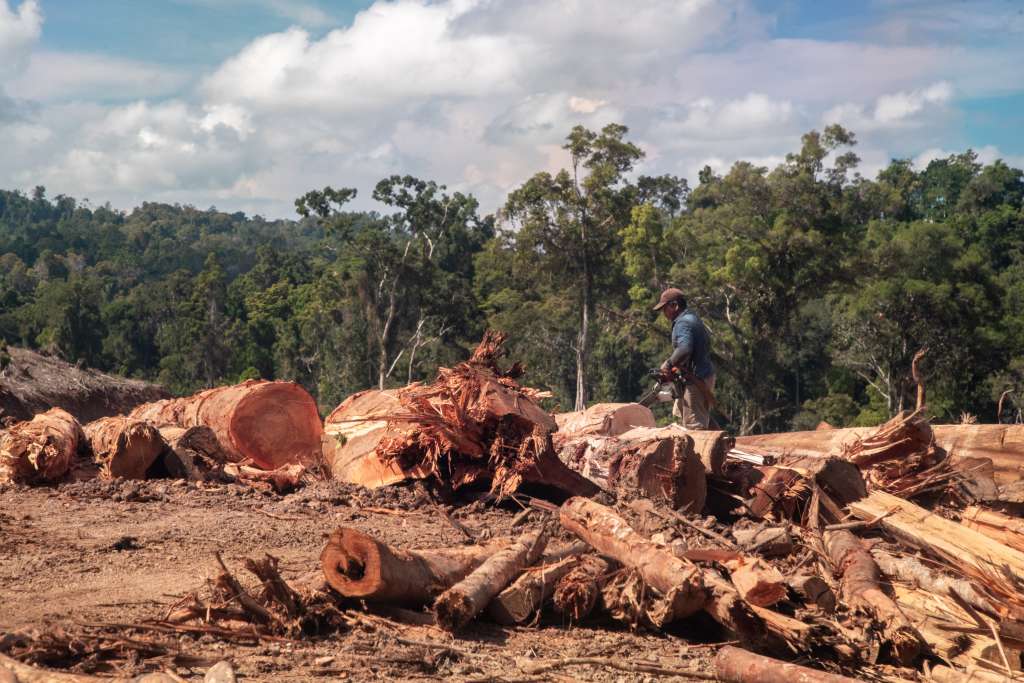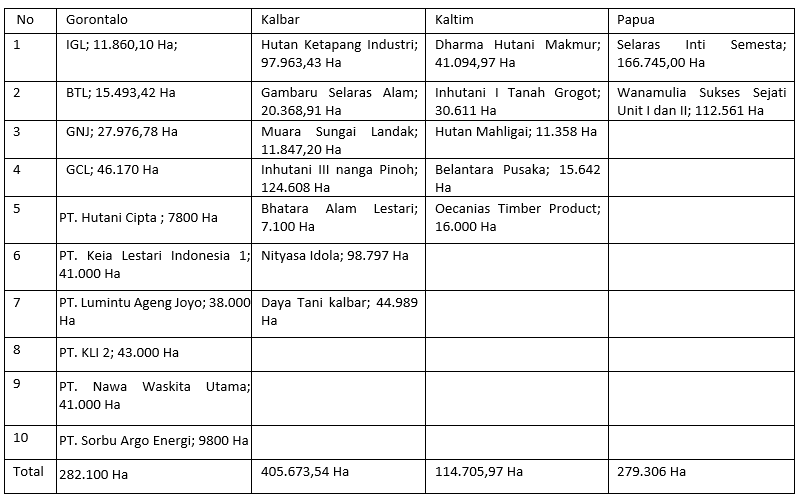
A day before Indonesia’s 79th Independence Day celebration, on Friday, August 16, 2024, the Indonesian Maritime Security Agency (Bakamla) State Vessel Gajah Laut-404, commanded by Lt. Col. Bakamla Agus Tri Haryanto, successfully apprehended the MV Lakas ship, which was suspected of carrying illegal goods in the waters of Gorontalo. The vessel, flying the Philippine flag, had 17 crew members onboard. According to written information received (through Detik.com news), on Friday (August 16, 2024), it was found that the vessel lacked several important documents, such as the Certificate of Analysis, Certificate of Origin, and Certificate of Shipper Declaration, which are required for the transport of hazardous goods under the International Maritime Solid Bulk Cargoes (IMSBC) Code. Additionally, the vessel was found to be carrying 10.545 metric tons of wood pellets suspected to be illegal.
Gorontalo is one of the largest wood pellet-exporting provinces in Indonesia, surpassing East Java and Central Java. Wood pellets are a commodity made from compacted wood powder or shavings, used as a source of energy (bioenergy). Two main countries that are export destinations for Gorontalo are Japan and South Korea. These countries use Indonesian wood pellets to be burned in power plants as a substitute for coal.
Gorontalo in the Clutch of Bioenergy
Reflecting on the state of forests in Gorontalo, data from Forest Watch Indonesia (FWI) shows that the remaining natural forest in Gorontalo is only about 693.795 hectares, or about 57 percent of the land area. Meanwhile, the deforestation rate remains high at 35.770,36 hectares (2017-2023).
New threats are emerging for the existence of natural resources in Gorontalo. Permits are transforming and camouflaging under the guise of energy transition by exploiting wood for bioenergy. Gorontalo is included in one of the national bioenergy project schemes. It is one of the largest in Indonesia, covering an area of 282.100 hectares with the highest number of permits, totaling 10 permits.
The bioenergy projects in Gorontalo come from three sources of land: first, from palm oil plantations that have received amnesty from the Ministry of Environment and Forestry (KLHK); second, from the conversion of industrial forest plantations; and third, from areas formerly under Forest Concession Rights (HPH).
There are two palm oil companies involved in wood pellet production, which are the PT Inti Global Laksana (IGL), operating under SK.3102/MENLHK-PSKL/PKTHA/PSL.1/5/2020 with an area of 11.860 hectares, and the PT Banyan Tumbuh Lestari (BTL) under SK.3103/MENLHK-PSKL/PKTHA/PSL.1/5/2020 with an area of 15.493 hectares. These permits are for Forest Utilization Rights from KLHK in Pohuwato Regency.
Two other companies also involved in bioenergy are PT Gema Nusantara Jaya (GNJ) and PT Gorontalo Citra Lestari (GCL). Both companies have held Forest Product Utilization Business Permits for Plantation Forests (IUPHHK-HT) since 2011. Initially, these companies were engaged in timber production with Jabon trees. They are now committed to producing wood pellets by establishing a primary wood processing industry called PT Gorontalo Panel Lestari. These companies are operating again under Forest Utilization Business Licensing (PBPH) with Number 1109/MENLHK/SETJEN/HPL.0/11/2021 for PT GNJ with an area of 27.976,78 hectares and PBPH Number 1110/Menlhk/Setjen/HPL.0/11/2021 for PT GCL with an area of 46.170 hectares. Both companies operate in North Gorontalo Regency.
Recently, data from the Gorontalo Province Environment and Forestry Office confirmed the potential issuance of 6 new permits in Gorontalo Province. These six forest utilization permits will also engage in bioenergy activities from wood raw materials, also known as Energy Plantations (HTE). The total area of these six HTE concessions could reach 180.000 hectares, spread across several regencies: Pohuwato, Boalemo, and North Gorontalo. The six new permits planned for issuance include PT Hutani Cipta (7.800 hectares), PT Keia Lestari Indonesia 1 (41.000 hectares), PT Lumintu Ageng Joyo (38.000 hectares), PT Keia Lestari Indonesia 2 (43.000 hectares), PT Nawa Waskita Utama (41.000 hectares), and PT Sorbu Agro Energi (9.800 hectares).
The issuance of these new permits is part of KLHK’s effort to achieve the net sink target by 2030. The Operational Plan for FoLU Net Sink 2030 targets the development of new plantations to reach 6 million hectares, with Gorontalo receiving their portion through new permits for as much as 17. 411 hectares. The plan to issue the six new permits in Gorontalo exceeds the quota. Unfortunately, the approach of issuing permits to corporations is still used as a strategy to meet emission reduction targets, both in the Second Nationally Determined Contribution agenda and the FoLU Net Sink 2030 target. Forest- and land-based bioenergy could lead Gorontalo, and even Indonesia, into “deforestation traps,” potentially undermining Indonesia’s global emission reduction targets.
Deforestation from the Wood Pellet Export Performance
Currently, the companies actively utilizing forest timber for wood pellet production are PT. IGL and PT. BTL. An investigation by Forest Watch Indonesia (FWI) in collaboration with the civil society organization network in Gorontalo, namely the Jaring Advokasi Pengelolaan Sumber Daya Alam (Japesda), and the Walhi Gorontalo network, found that PT. BTL uses timber sourced from natural forests, not from plantation forests or rehabilitation activities. According to FWI’s analysis, deforestation in natural forests within the concessions of PT. IGL and PT. BTL from 2021 to 2023 amounted to 1.087,25 hectares.

In both concessions, about 65 percent is still natural forest that is at risk of being “cleared” for wood pellet production. FWI defines the remaining natural forest within these concessions as part of the planned deforestation scheme by the Ministry of Environment and Forestry (KLHK).
According to the Wood Legality Information System (SILK KLHK), wood pellet exports from Gorontalo Province is reaching the amount of 56.713 tons with a value of 7,71 million USD. The exports occurred five times between October 2023 and June 13, 2024. The destination for the wood pellets is Japan and South Korea through the company Hanwa. Co. Gorontalo is the major supplier of all Indonesian wood pellet exports. The total value of Indonesian wood pellet exports is 8.190.132 USD with a weight of 60.250 tons. Given that the current market for wood pellets is only Japan and South Korea, Gorontalo has fulfilled at least 94 percent of the total wood pellet export activity to these two countries. The only company recorded by KLHK as an exporter of wood pellets in Gorontalo Province is PT. Biomassa Jaya Abadi (BJA).
Quotation
Anggi Prayoga (Campaigner at FWI) stated that Gorontalo is under the grip of the National Bioenergy Project, one of the largest in Indonesia, covering 282.000 hectares with 10 permits. Planned deforestation in Gorontalo due to the bioenergy project cannot be justified. Utilizing timber from natural forests will never address issues related to the energy transition agenda aimed at emission reduction.
Renal Husa from Walhi Gorontalo emphasized the rejection of all extractive industries, including the National Bioenergy Project extending for 282.000 hectares in Gorontalo, because it threatens community-managed spaces and has the potential to create new ecological disasters. The forests of Gorontalo should be managed by the people, not corporations, given the long history of conflict with communities, such as those involving four companies, including palm oil plantations in Pohuwato and PT GNJ and PT GCL in North Gorontalo, which have been involved in incidents of assault and arrest of locals.

Dr. Terry Repi, M.Si from the Institute for Human and Ecological Studies (Inhides) and an academic at Muhammadiyah University of Gorontalo, highlighted that bioenergy poses a serious threat to biodiversity. Bioenergy activities can accelerate habitat loss, particularly for specialist species and those with extensive ranges, risking extinction. Forest conversion can alter the structure and composition of forest ecosystems and promote the emergence of invasive species that disrupt ecosystem balance. Additionally, it takes a very long time, between 44 to 104 years, for forests to absorb excess CO2 after deforestation (Sterman et al. 2018). This means that the assumption that wood bioenergy is carbon-neutral is overly optimistic and could delay more effective climate change mitigation efforts.
Dr. Abubakar Siddik Katili, M.Sc, a member of Japesda and also from the Center for Coastal Ecology Studies based on Local Wisdom (PKEPKL) at Gorontalo State University, said that ecosystem damage due to bioenergy projects could result in the loss of forest functions as environmental service providers, triggering global climate change. Ecosystem and environmental damage is a reflection of characteristic and behaviour that disregard ecological balance. Every action has a significant impact on the environment and other living beings, and we see how environmental awareness should be an integral part of character development.

Contact Person: +62 857-2034-6154 (Hasna FWI)



